More Stories
Parts of the tri-state area are seeing alarming drought conditions not seen in years, if not decades, with a very hot summer that has also brought little rainfall.
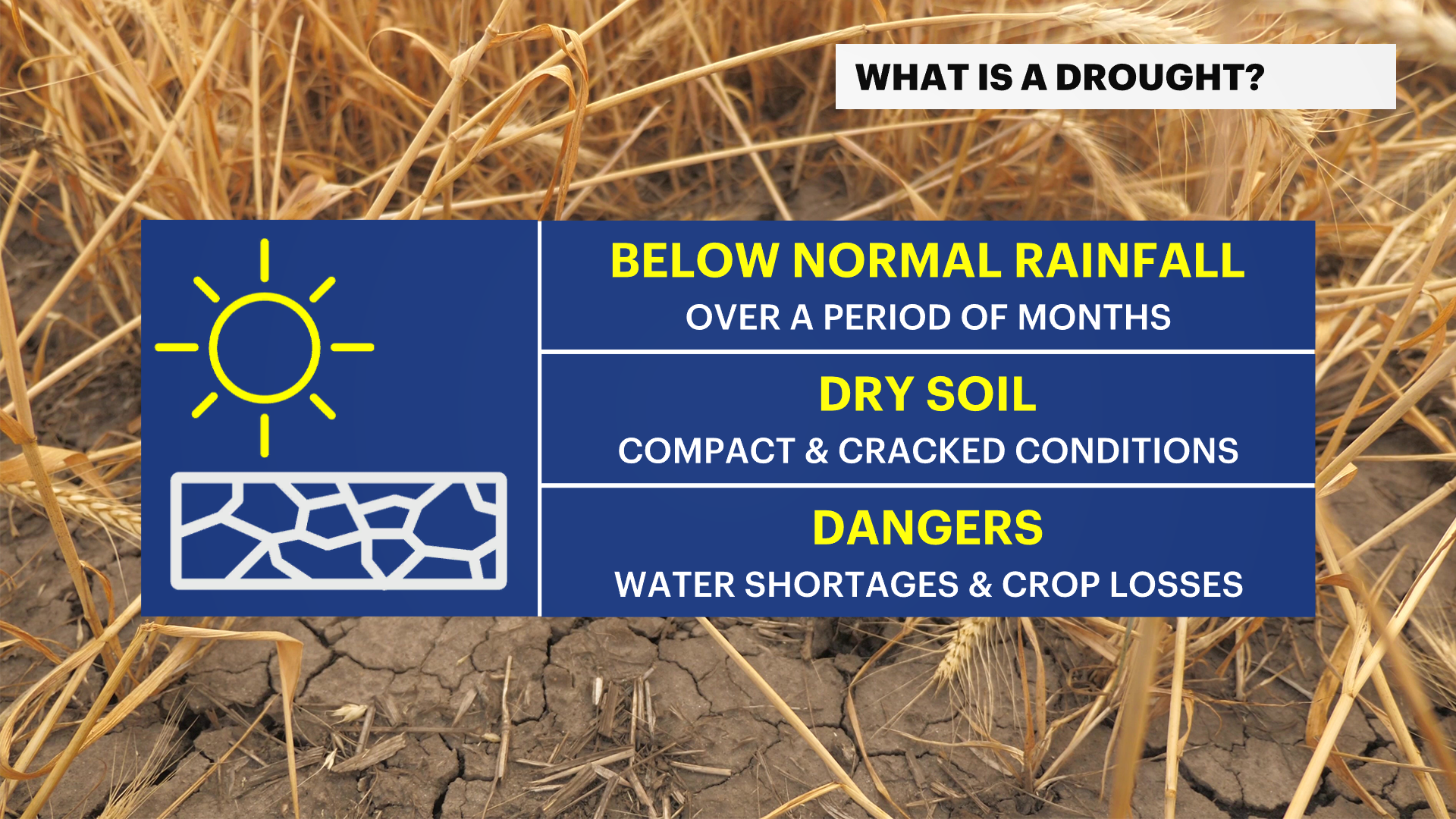
The U.S. Drought Monitor is a weekly update that identifies the location and intensity of drought conditions. There are five categories:
1. Abnormally dry: elevated fire danger, slower planting and crop growth
2. Moderate drought: developing water shortages, some damage to crops
3. Severe drought: water restrictions possible, crop loss likely
4. Extreme drought: widespread water shortages and restrictions, major crop loss
5. Exceptional drought: water emergencies likely, widespread crop loss
Nearly the entire tri-state is at least abnormally dry, with the only exceptions being parts of Sussex and Ocean counties in New Jersey. Nearly half of the region is under at least a moderate drought.
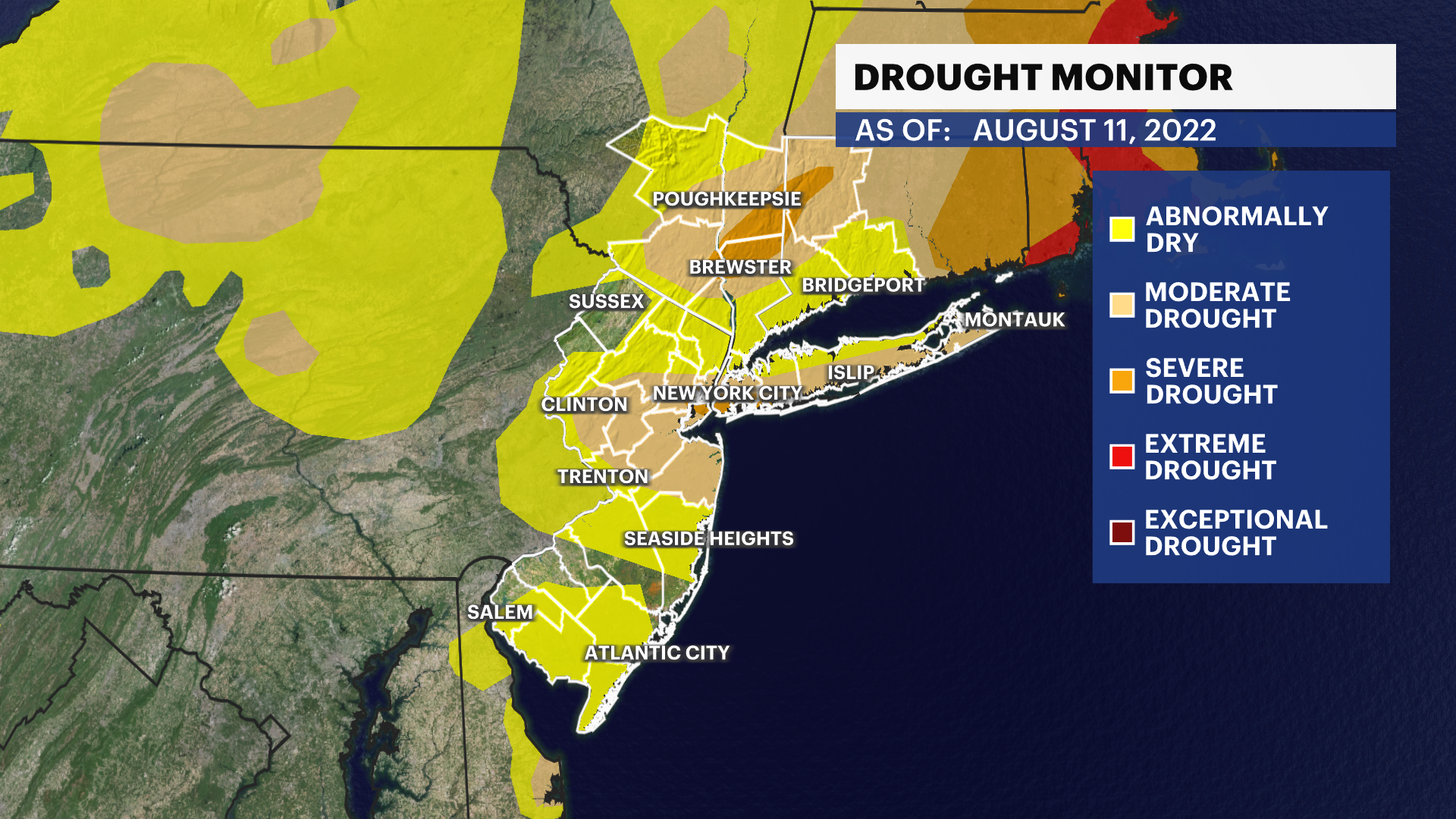
Drought conditions have continued to expand through this relatively dry summer, and a severe drought has developed across parts of the area.
For New York City, 90.8% of Brooklyn, 42.35% of Staten Island, and 28.62% of Queens are now in a severe drought.
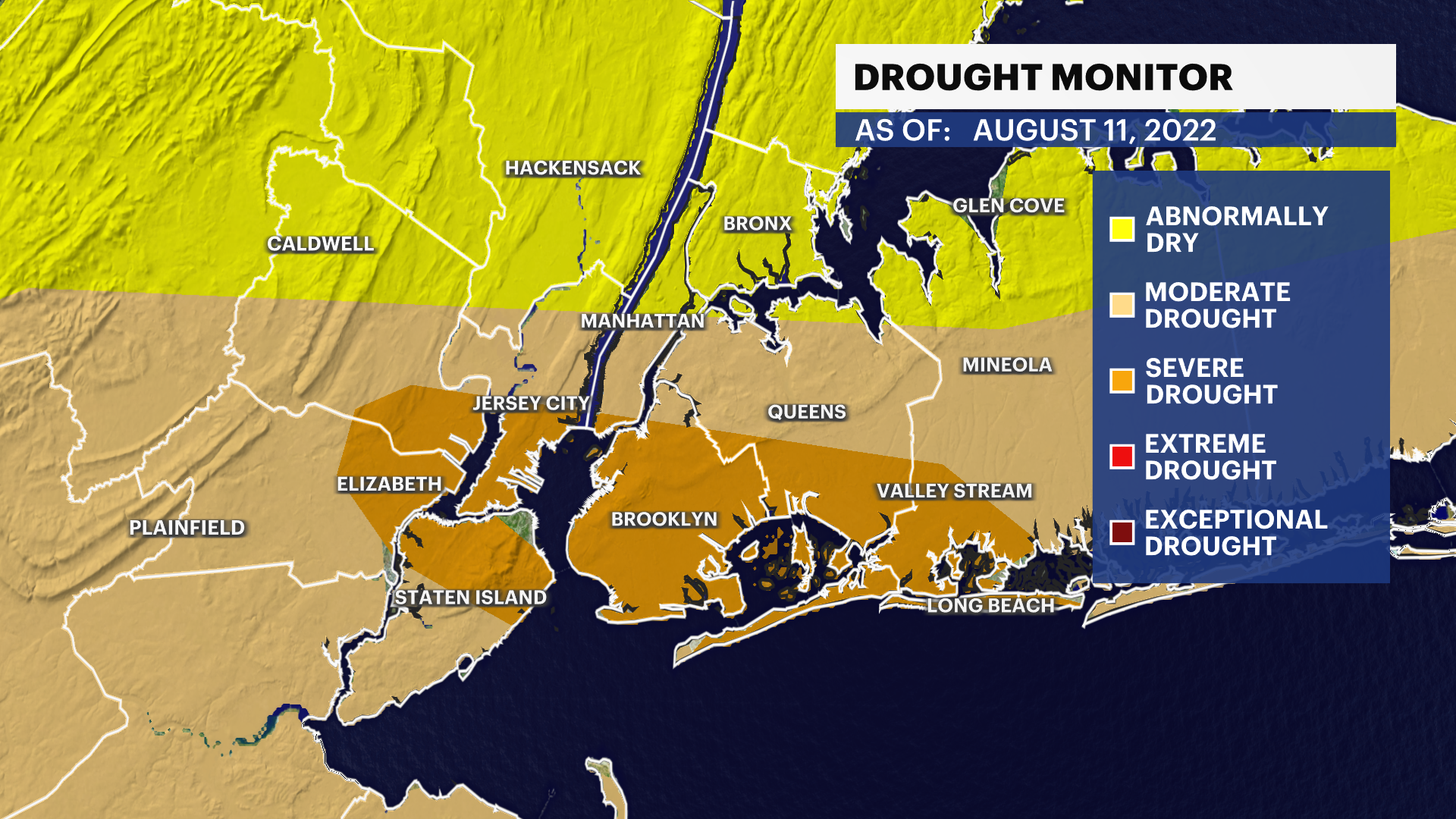
This is the first time Brooklyn has seen a severe drought in 20 years, since the summer of 2002. It is especially evident by the many brown grassy areas and numerous fallen leaves.
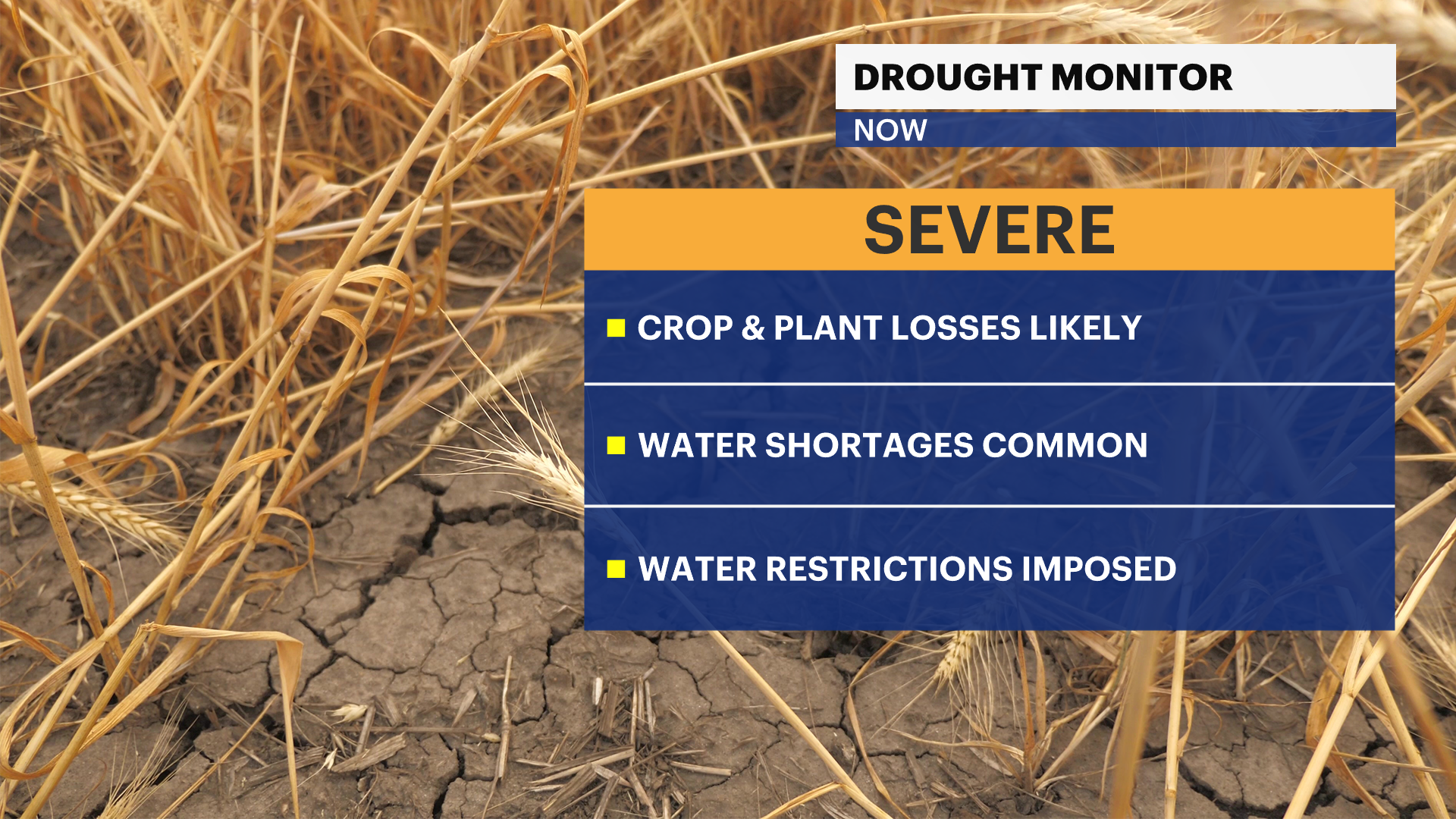
This area of severe drought also extends east to southern Nassau County on Long Island, and west to parts of Hudson, Essex and Union counties in New Jersey. These areas have not experienced a severe drought since 2017.
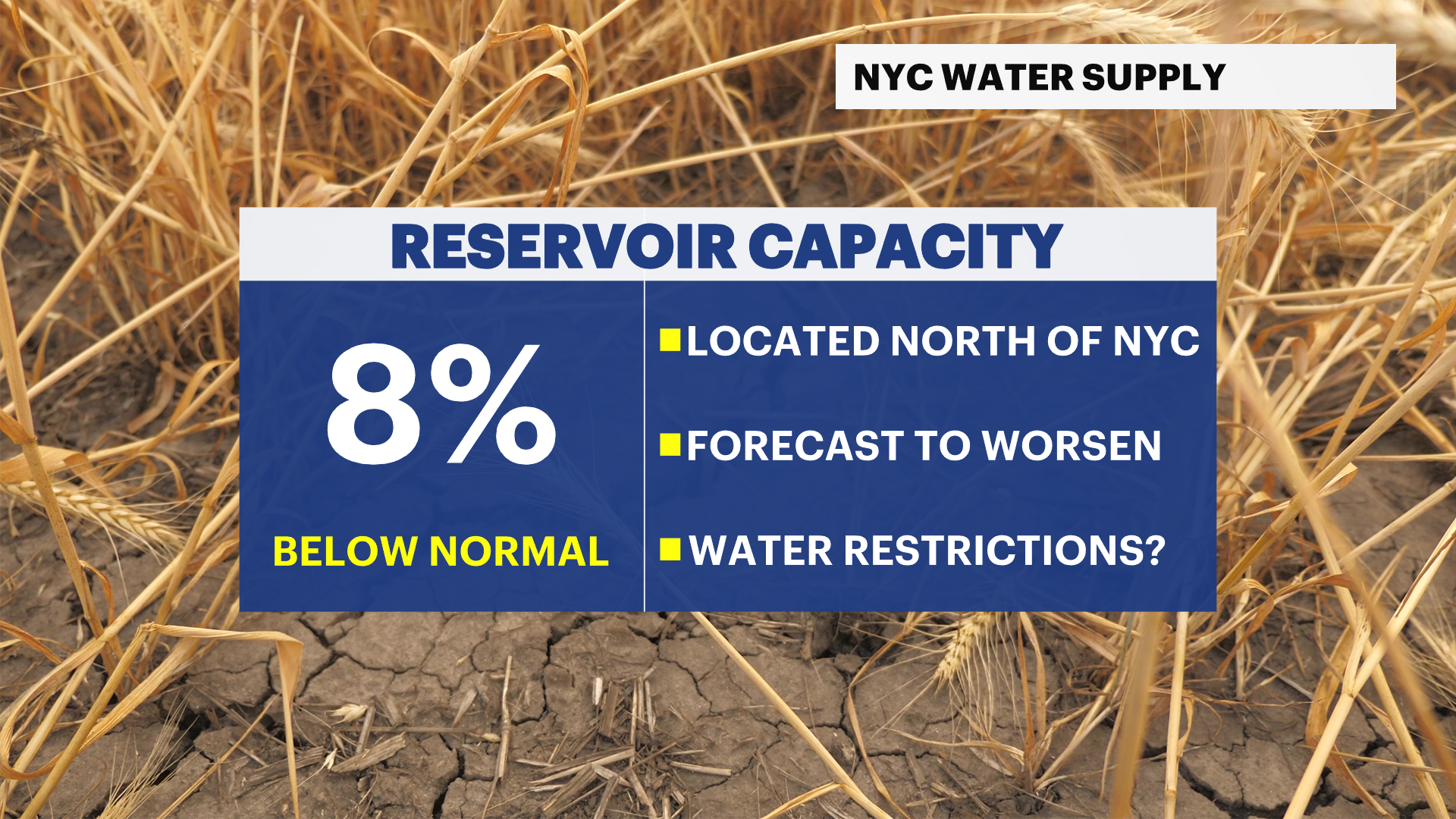
That was also the last time parts of the Hudson Valley and western Connecticut saw a severe drought. Much of New York City’s water supply system is located in parts of Westchester and Putnam counties. Most of this area is under a moderate drought. 85.16% of Putnam County is in a severe drought.
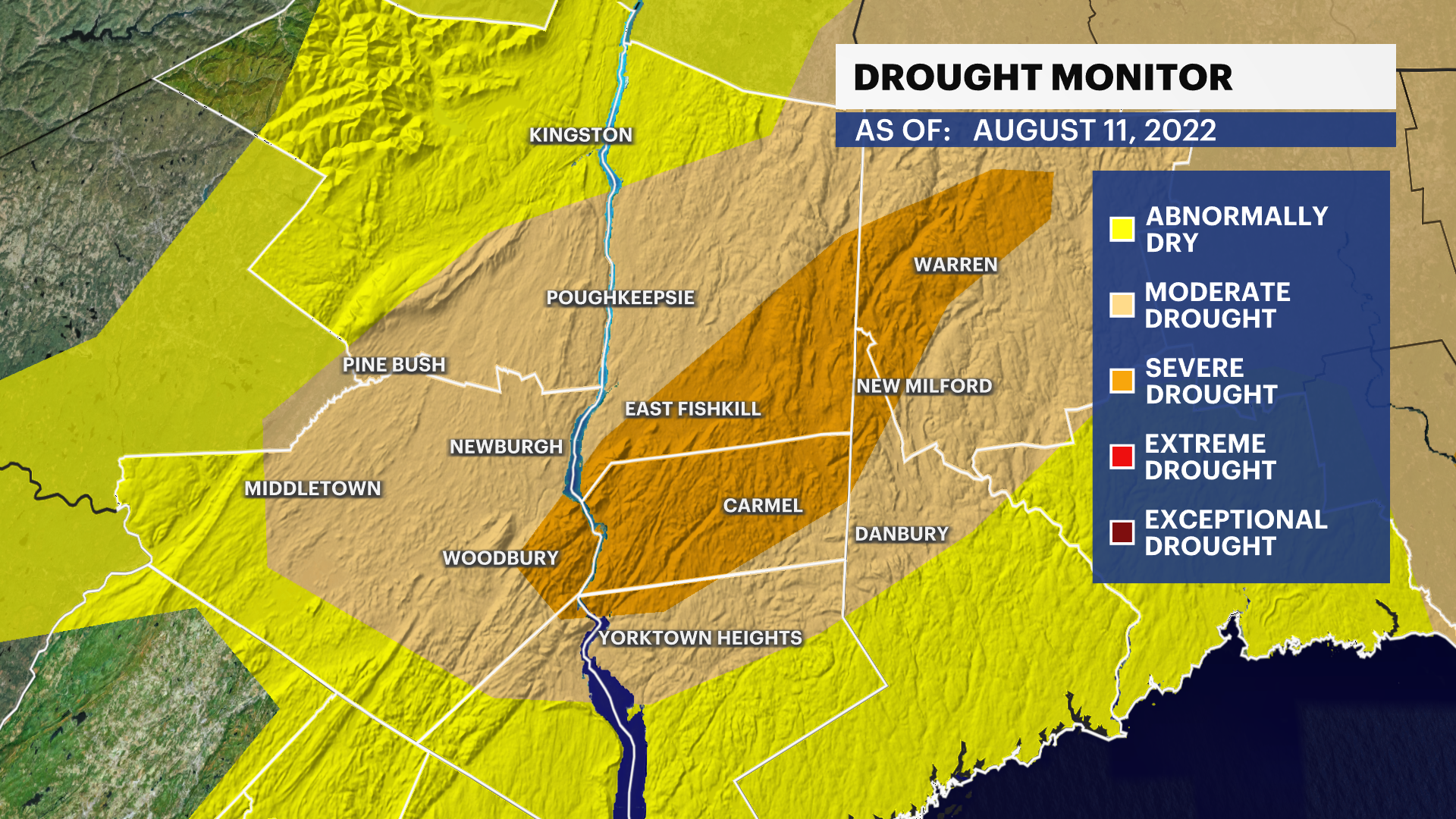
WHAT’S NEXT?
Water restrictions may soon be possible if this troubling trend continues. The official monthly outlook for August from the Climate Prediction Center calls for slightly below-average rainfall for the Hudson Valley and Connecticut. The CPC has equal chances for above- or below-average rainfall for New York City, Long Island and New Jersey.
More from News 12
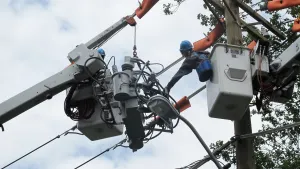
Power center: Electric outage resources

Gov. Hochul declares state of emergency ahead of Sunday's winter storm
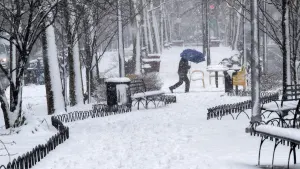
25 tips to keep you safe during a winter storm
4:12

What you need to know about the snowstorm heading toward the tri-state Sunday into Monday
1:37

Warmer temps finally on the way after brutal stretch
1:26
